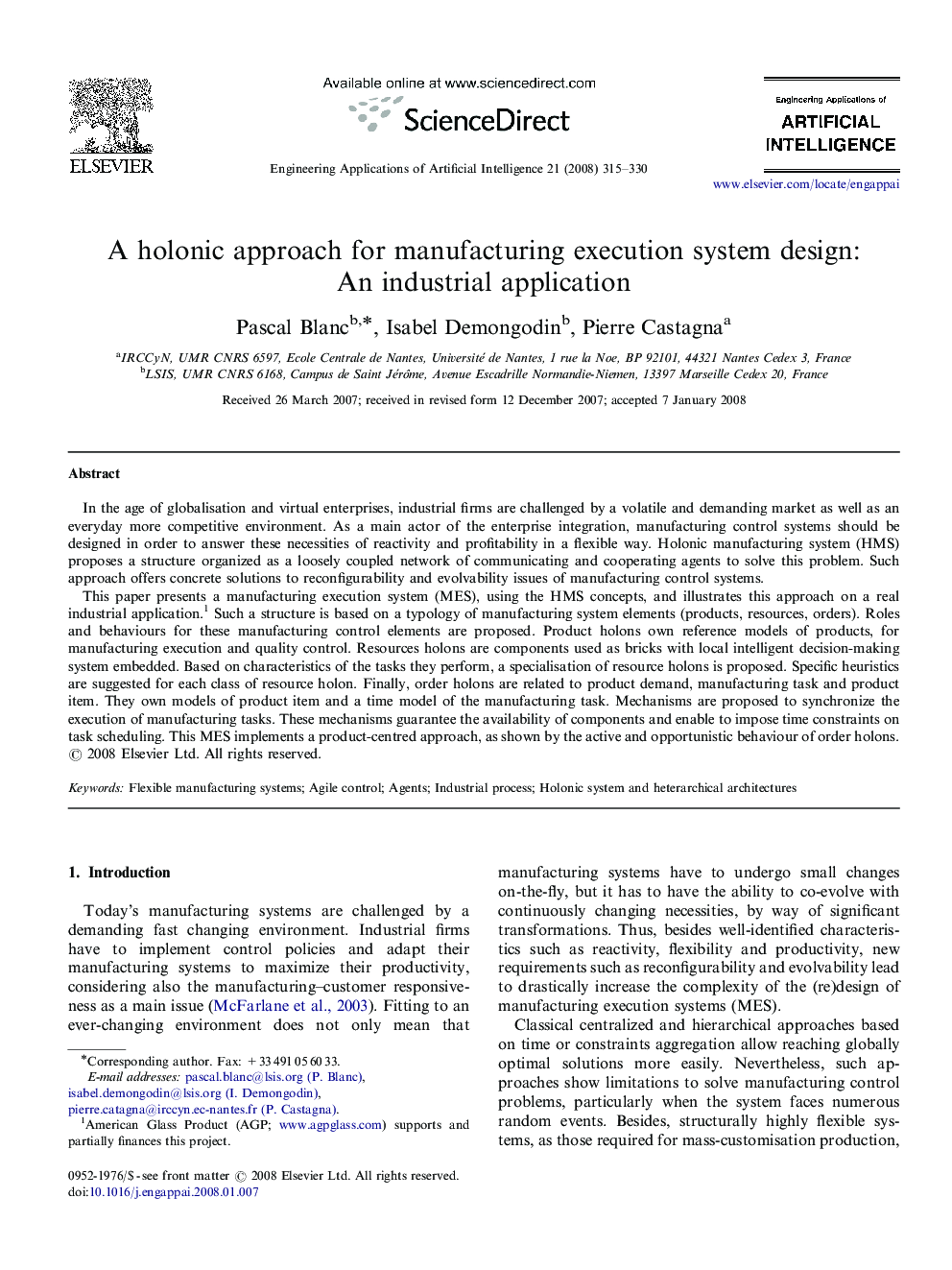| Article ID | Journal | Published Year | Pages | File Type |
|---|---|---|---|---|
| 381388 | Engineering Applications of Artificial Intelligence | 2008 | 16 Pages |
In the age of globalisation and virtual enterprises, industrial firms are challenged by a volatile and demanding market as well as an everyday more competitive environment. As a main actor of the enterprise integration, manufacturing control systems should be designed in order to answer these necessities of reactivity and profitability in a flexible way. Holonic manufacturing system (HMS) proposes a structure organized as a loosely coupled network of communicating and cooperating agents to solve this problem. Such approach offers concrete solutions to reconfigurability and evolvability issues of manufacturing control systems.This paper presents a manufacturing execution system (MES), using the HMS concepts, and illustrates this approach on a real industrial application.1 Such a structure is based on a typology of manufacturing system elements (products, resources, orders). Roles and behaviours for these manufacturing control elements are proposed. Product holons own reference models of products, for manufacturing execution and quality control. Resources holons are components used as bricks with local intelligent decision-making system embedded. Based on characteristics of the tasks they perform, a specialisation of resource holons is proposed. Specific heuristics are suggested for each class of resource holon. Finally, order holons are related to product demand, manufacturing task and product item. They own models of product item and a time model of the manufacturing task. Mechanisms are proposed to synchronize the execution of manufacturing tasks. These mechanisms guarantee the availability of components and enable to impose time constraints on task scheduling. This MES implements a product-centred approach, as shown by the active and opportunistic behaviour of order holons.
